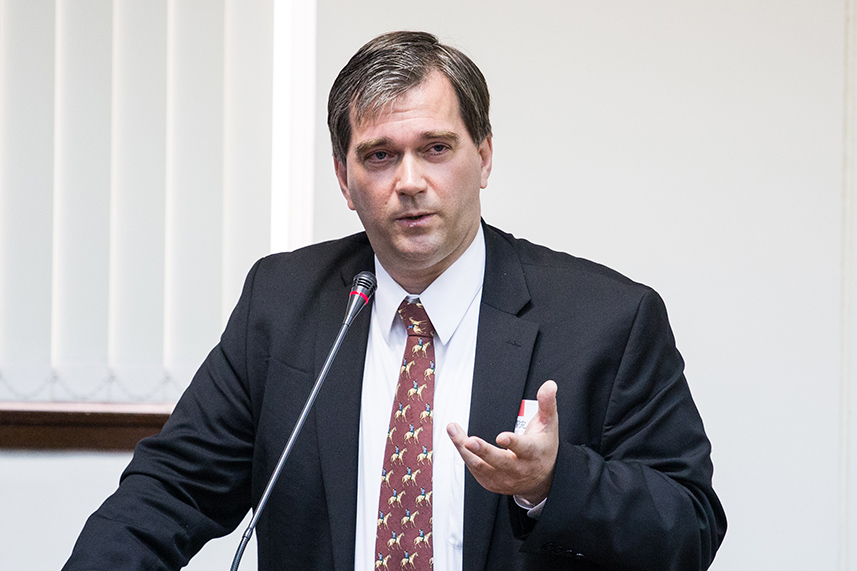
Doctors Announce First ‘International Day Against Forced Organ Harvesting’
Doctors Against Forced Organ Harvesting, a nongovernmental coalition of medical professionals, has declared the date of Oct. 1 the “International Day Against Forced Organ Harvesting.” This year is the inaugural occasion, and to mark it the group has called on the United Nations High Commissioner for Human Rights to take action on the abuse.
The concerns of DAFOH, as the organization is often known, focus primarily on what they describe as the killing of prisoners of conscience in China for organs—the practice is believed by researchers to primarily target practitioners of Falun Gong, a spiritual discipline that has been marked for elimination since 1999, as well as other ethnic or religious communities, including Tibetans, Uyghurs, and possibly some “house church” Christians.
Those concerned with the issue are enjoined by DAFOH to download their petition and send it to both DAFOH and the email address of the UN High Commissioner for Human Rights. The petition expresses “alarm… [at] the mass of evidence of forced organ harvesting from prisoners of conscience in China.”
It calls on the High Commissioner, currently Prince Zeid bin Ra’ad of Jordan, to call upon China to cease forced organ harvesting, “initiate further objective investigations that lead to the prosecution of the perpetrators involved in this crime against humanity,” and also call upon the cessation of the persecution of Falun Gong.
Falun Gong, a set of five slow-motion exercises and moral teachings centered on the principles of truthfulness, compassion, and tolerance, gained significant popularity in China during the 1990s, before it befell the wrath of the leader at the time, Jiang Zemin.
According to the most recent research by the investigators David Kilgour, David Matas, and Ethan Gutmann, between 60,000 and 100,000 organ transplants have been conducted per year in China since around the year 2000 — just six months after the persecution of Falun Gong started. During this period, China claimed that almost the sole source of its organs were death row prisoners — even as the number of death row executees fell, year by year.
Given the enormous gap between the number of transplants and judicial executions, however, (researchers say the latter number is only in the thousands per year), researchers have explored alternate organ sources, and concluded that practitioners of Falun Gong are targeted. The evidence supporting this includes surreptitiously recorded telephone calls with doctors who say they have healthy organs from Falun Gong, multiple independent reports of blood-testing in custody, overlap between personnel engaged in the anti-Falun Gong campaign and organ transplantation, and a range of other indicators.
DAFOH highlights on its website a number of statements of international support, including from Japan and the United States.
Hiroshi Yamada, Member of the House of Councillors in the Japanese Diet, is quoted saying: “I sincerely express my condolence to those who were victims of the forced organ harvesting. We will take an action from Japan so that this Holocaust, which challenges the sublime spirit of medicine, will be eliminated as soon as possible through strong solidarity of people with conscience in the whole world.”
A number of U.S. federal and state elected representatives also provided comments on the occasion. “Dear Members of the United Nations Human Rights Commission,” writes State Rep. Michael F. Curtin of Ohio. “For many years, I have been deeply troubled by the mounting evidence of forced organ harvesting in China and elsewhere in the world.
The U.N. Human Rights Commission has a moral duty to do everything in its power to bring an end to this outrageous scourge, an affront to civilization and an affront to humanity itself.”
Congressman Michael G. Fitzpatrick, a Republican from Pennsylvania, entered the commemoration into the House of Representatives record with a statement on Sept. 30. “This practice is another form of evil in our time and the United Nations will be further alerted to this crime against humanity, as are we,” he said.
Incidentally, or not, the date of Oct. 1 contains additional significance: It is on this date in 1949 that Mao Zedong proclaimed the People’s Republic of China.
